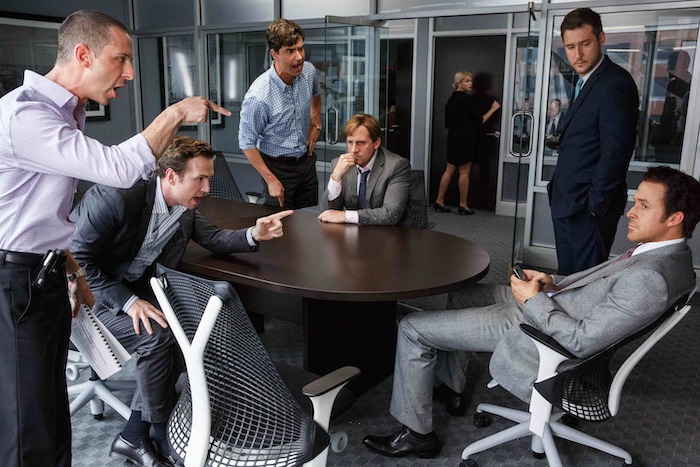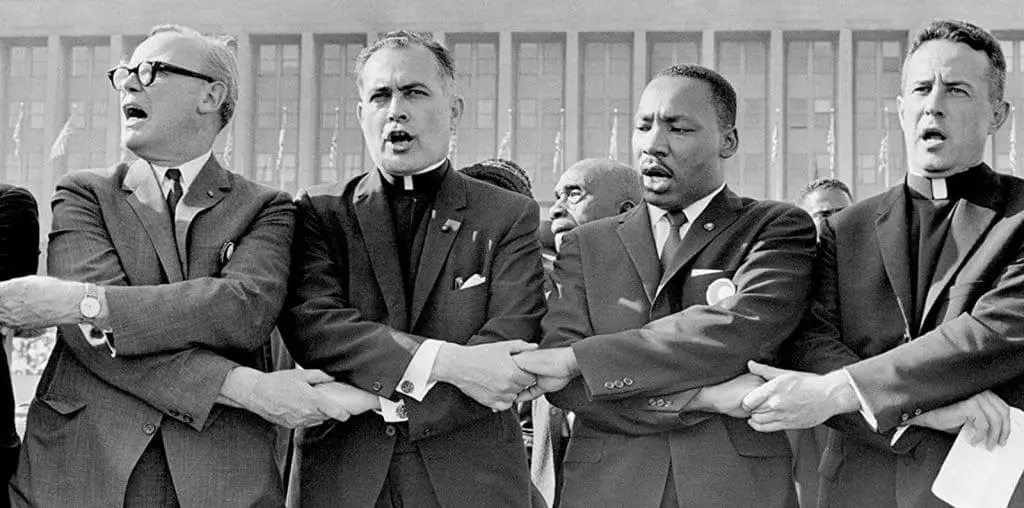
Learn about money through film. Explore how greed and ambition shape financial decisions in these compelling stories. Film is a great teaching tool that allows us to learn from the experiences of others. Of course, we are talking exclusively about good films with a deep storyline and meaningful ideas. However, a person focused on continuous development can find value even in the most banal plot.
The question of money worries many people. How to earn capital, become rich, and what is needed to increase income are common concerns. Today, big money and the ways of obtaining it can be legal or illegal. The latter are of particular interest to modern audiences, and filmmakers are well aware of this Clevago.
Consequently, films are regularly released worldwide featuring protagonists who, faced with financial difficulties, choose a difficult and risky path. Instead of taking an emergency loan, even with a bad credit score, which could temporarily solve their problems, they get involved in dubious schemes. The decision to use illegal methods to obtain money seems attractive due to the potential for quick and significant income. However, such actions are always associated with risks and consequences that can lead to serious legal problems.
To avoid falling into a financial trap, spend an evening watching an exciting movie and become much more educated about money. Choose from the films about finance provided below and combine business with pleasure.

The Wolf of Wall Street (2013)
A black comedy by Martin Scorsese that received five Oscar nominations. The film tells the story of Jordan Belfort, played by Leonardo DiCaprio. He was a successful Wall Street broker later imprisoned for fraud and financial machinations. The story begins in 1987. Belfort made a career in investment banking, and his boss, Mark Hanna (Matthew McConaughey), advised him to live large.
In October 1987, the largest crash of the Dow Jones index occurred, and Belfort lost his job. He opened his own small company, Stratton Oakmont, and quickly made much money through financial machinations, selling undervalued stocks. Belfort spends the money on parties, luxury homes, yachts, and entertainment, and he has an affair with a model (Margot Robbie). Forbes magazine calls him “the Wolf of Wall Street.” However, the FBI, represented by agent Patrick Denham (Kyle Chandler), begins to take an interest in his activities, which leads to his downfall.
The film is worth watching if you are interested in how people who don’t know what to do with their money live and how even the most successful scammers pay for their actions. It’s noteworthy that Leonardo DiCaprio won a Golden Globe for this role. The film also stars Jonah Hill and Jon Bernthal, adding depth and dynamics to this gripping story.
The Pursuit of Happyness (2006)
This is an Oscar-nominated biographical movie about making money directed by Gabriele Muccino. The story begins in San Francisco in the early 1980s. Gardner invests his modest savings in portable bone density scanners, which he tries to sell to doctors. However, financial difficulties take their toll on his family: his wife Linda leaves, leaving Chris with their young son Christopher (Jaden Smith).
Chris takes an unpaid internship at the prestigious brokerage firm Dean Witter Reynolds, hoping to get a permanent position. Despite homelessness, sleeping in shelters, and the difficulties of raising his son alone, he does not give up. Gardner works tirelessly, and his persistence eventually bears fruit: he becomes one of the leading stockbrokers at the firm. The film’s script is based on real events, which gives the story special value. Perseverance, self-confidence, and responsibility for loved ones are the qualities that led Chris Gardner to success. The real Chris Gardner also makes a brief appearance in the film.
“The Pursuit of Happyness” is an eternal rags-to-riches story. If you still have illusions about a magic wand that will solve all your problems, this film will dispel them. Work, faith, and persistence are Chris Gardner’s recipe for success.
Boiler Room (2000)
Boiler Room (2000) is a gripping drama that delves into the world of high-stakes finance and moral ambiguity. Directed by Ben Younger, the film follows Seth Davis, a young and ambitious college dropout who enters the stock brokerage world. Seduced by the promise of wealth and success, Seth joins a shady firm where brokers engage in aggressive and often fraudulent sales tactics to earn massive commissions.
The narrative explores Seth’s moral struggles as he navigates the morally dubious practices of the firm led by its charismatic but ethically bankrupt CEO. As Seth climbs the ranks, he faces increasingly difficult choices that challenge his integrity and personal values. The film paints a stark picture of greed, ambition, and the lure of quick riches in the cutthroat world of finance.
“Boiler Room” is characterized by its tense atmosphere, sharp dialogue, and compelling portrayal of characters caught in corporate America’s moral gray zone. It offers viewers a thought-provoking glimpse into the darker side of ambition and the consequences of chasing wealth at any cost.
Margin Call (2011)
This is a dramatic film related to the 2008 crisis. Director J.S. Chandor debuted on the big screen with this project, which was nominated for an Oscar and won at the Berlin Film Festival. The original title, “Margin Call,” reflects a financial term when the investor’s balance level falls below the minimum acceptable level.
“Margin Call” is a one-day drama that looks at the employees’ lives of one of the major investment banks at the beginning of the financial crisis and their internal conflicts. The film highlights the difficulties and ethical dilemmas people on Wall Street face. The director’s father was an investment banker, so the film conveys the realities of the financial world with particular accuracy and depth.
The movie about money, “Margin Call,” will be interesting for those just beginning to get acquainted with the financial sphere and those who want to understand how the world of investment banks works. If The Wolf of Wall Street leaves you thinking that working in finance isn’t all about parties and quick cash but also difficult moral choices, watch Margin Call for a more complete picture of the profession.

The Big Short (2015)
The Big Short (2015) by Adam McKay follows a group of financial analysts and hedge fund managers (Christian Bale, Steve Carell, Ryan Gosling, and Brad Pitt) who, long before the 2008 financial crisis, began making trades to protect their assets and make huge profits when everyone else was losing.
Not only is the film an event thanks to its cast and compelling plot, but it also provides simple explanations of complex financial instruments that are understandable even to those unfamiliar with financial terminology. Based on real events, it explores how human greed and a lack of regulation can lead to global economic crises.
The film highlights the importance of understanding the mechanics of financial markets and the risks that investors and companies face. The financiers’ work in The Big Short reflects their desire to make money and ability to analyze and predict financial shocks. This becomes especially relevant in the context of modern challenges and changes in the global economy. If you are interested in the causes of the 2008 crisis and want to better understand how financial markets work and the risks associated with them, “The Big Short” is a great choice for you.
Wall Street (1987)
Wall Street (1987), directed by Oliver Stone, is a cinematic icon. It is a landmark film about the cutthroat world of Wall Street finance, where wealth and power often teeter on the edge of law and morality.
The protagonist, a young stockbroker named Buddy Fox (Charlie Sheen), strives to climb to the top of an investment bank. His ambition and passion for achieving his goals lead him to the famous corporate raider Gordon Gekko (Michael Douglas in a breakout role), whose ruthless methods and “greed is good” philosophy begin to affect Buddy profoundly.
The film shows the bright and colorful finance world and highlights this all-consuming industry’s dark side. It raises questions about morality, corruption, and the price we are willing to pay to achieve our dreams. Oliver Stone created an epic movie that became a symbol of the 80s and a relevant warning about the harmful consequences of an unlimited thirst for power and wealth.

Moneyball (2011)
The film Moneyball, directed by Bennett Miller, is based on real events. It tells the story of Billy Beane, the manager of the Oakland Athletics baseball team. In 2001, the New York Yankees defeated the team in the playoffs and lost key players due to limited financial resources. Now, Billy Beane is faced with a challenge: how to find ways to revive the team and assemble a strong roster for the upcoming season.
In search of innovative solutions, Billy meets a young economist named Peter Brand, who offers a unique mathematical approach to assessing the effectiveness of players based on their statistics. Billy decides to use this theory and assembles a new team of little-known players despite the resistance of fans and the head coach of the Athletics.
Miller’s film is about what it means to be a sports manager and what role money plays in big-time sports. If you still think mathematics and statistics are boring and useless, watch “Moneyball.”
Brewster’s Millions (1985)
The film Brewster’s Millions is a thrilling journey into the world of extravagant spending and unusual adventures. The main character, Montgomery Brewster, finds himself in an unusual situation: to inherit a huge fortune, he must spend $30 million a month. But there is a catch—he cannot buy liquid assets such as real estate or securities.
Brewster faces enormous difficulties and unexpected twists and turns playing this financial game. His adventures include eccentric spending on the most unusual things, from exclusive parties on a yacht to buying exotic animals and creating useless but expensive businesses. Each step brings him closer to his goal but also increases the risk of failure due to the strict terms of the will.
Money-related movies like this amuse viewers with their bright humor and unusual situations and ask important questions about money’s value, wealth’s meaning, and real values in life. It shows how extreme conditions can change a person’s perception of his life priorities through the prism of comedy.
Joy (2015)
Joy by David O. Russell tells the story of Joy Mangano, a woman who became a successful entrepreneur thanks to her invention, the self-wringing rag. The film follows her from the beginning of her career to reaching great heights. It demonstrates her struggle with obstacles and doubts of those around her. Jennifer Lawrence plays the leading role brilliantly, adding depth to the film. Bradley Cooper and Robert De Niro also contribute to the plot, creating a vivid image of Joy’s surroundings.
This money motivational movie covers family relationships, self-development, and self-affirmation. It emphasizes the importance of determination and courage in achieving one’s goals. Russell’s unconventional structure and dynamic editing give Joy a special energy and individuality. Overall, Joy is an inspiring story of one woman’s courage and entrepreneurial spirit, proving that you can overcome any obstacle and achieve business success with persistence and determination.
Erin Brockovich (2000)
Erin Brockovich is a drama inspired by true events directed by Steven Soderbergh. It tells the story of Erin Brockovich, a woman without a law degree who becomes the centerpiece of a lawsuit against the powerful Pacific Gas and Electric Company.
The plot begins with Erin, played by Julia Roberts, finding herself in a difficult life situation. She is looking for a job and a way to provide for her children. She learns of strange illnesses and contaminated water in Hinkley, California, through a series of random events. Determined and undaunted, she collects evidence and connects with the affected residents.
In her investigation, Erin encounters resistance from local government and corporate interests at PG&E. Her tenacity and integrity allowed her to uncover massive environmental violations and establish PG&E’s culpability in polluting the water with chemicals, causing illness and death in the area.
A key theme in the movie about success is the importance of money. For Erin, money becomes not only a means of survival but also a tool for achieving justice and changing the living conditions of victims. Her persistent efforts and relentless fight for compensation for victims led to a historic court decision. The film inspired many people and made them believe that truth and justice can be achieved despite the power of corporations and the complexity of legal proceedings.

